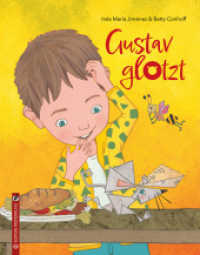- ホーム
- > 洋書
- > 英文書
- > Politics / International Relations
Full Description
This book analyzes the economic reforms and political adjustments that took place in Cuba during the era of Raúl Castro's leadership and its immediate aftermath, the first year of his successor, Miguel Díaz-Canel. Faced with economic challenges and a political crisis of legitimacy now that the Castro brothers are no longer in power, the Cuban Revolution finds itself at another critical juncture, confronted with the loss of Latin American allies and a more hostile and implacable US administration.
Contents
1 Introduction.- 2 Retreat of State as Economic Actor?.- 3 Achieving the Required Surge in Investment and Growth?.- 4 Political implications of socio-economic changes.- 5 The evolving international arena - fitting into a new context.- 6 More Pluralism; or Continued Authoritarianism?.- 7 Evolution of Party and State Relations.- 8 Towards the End of Gerontocracy.- 9 Into the Critical Juncture: Principal Dilemmas and Possible Scenarios.- 10 Conclusions.








